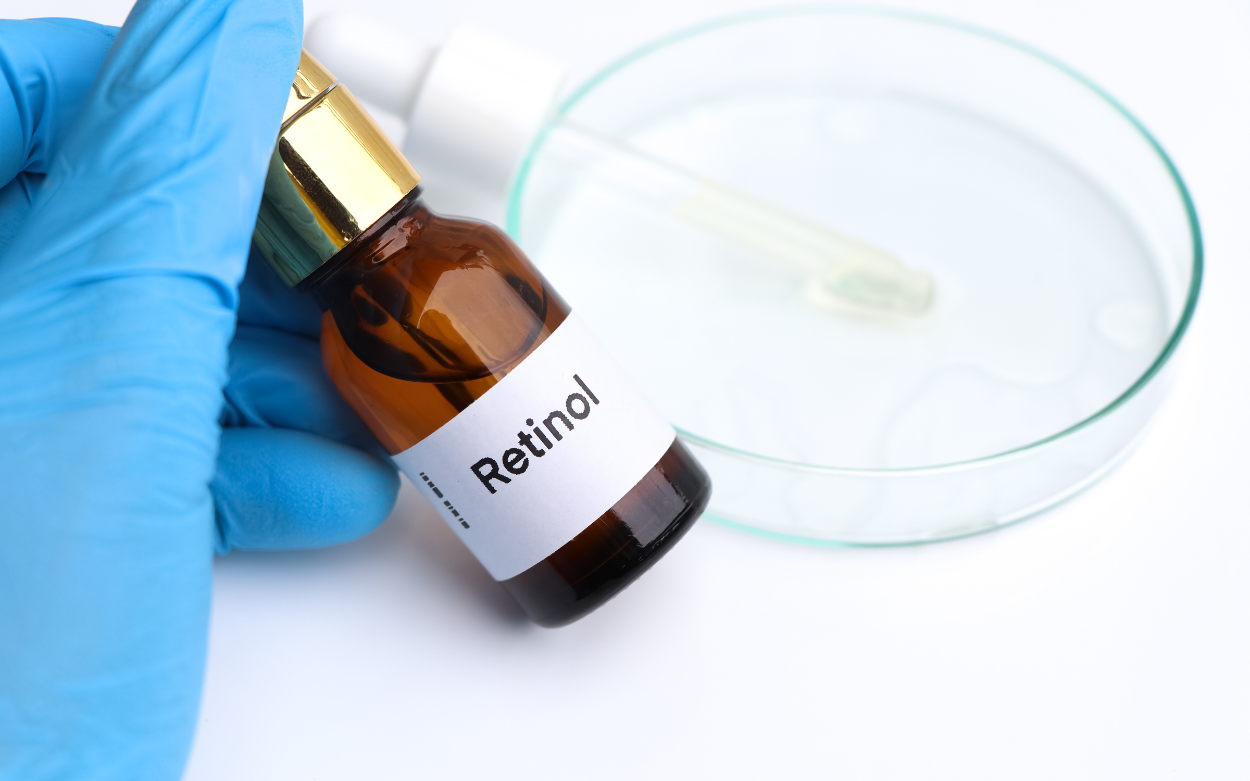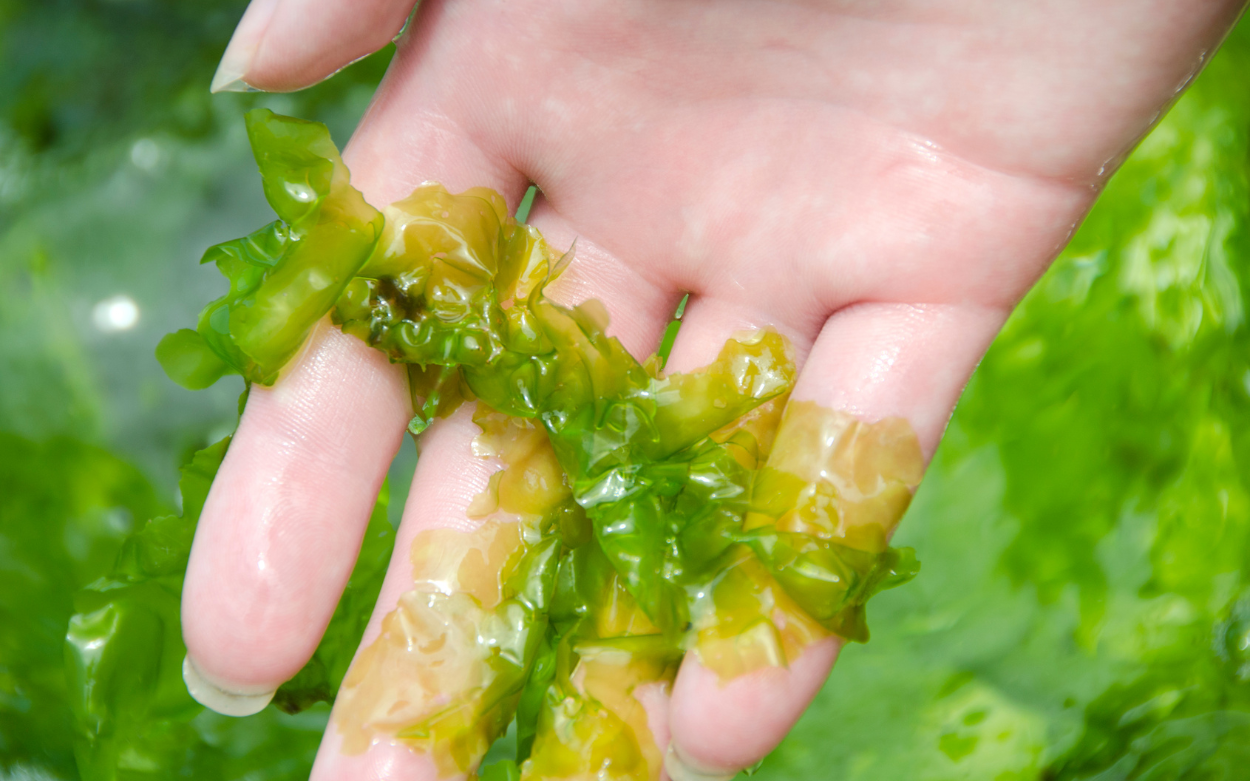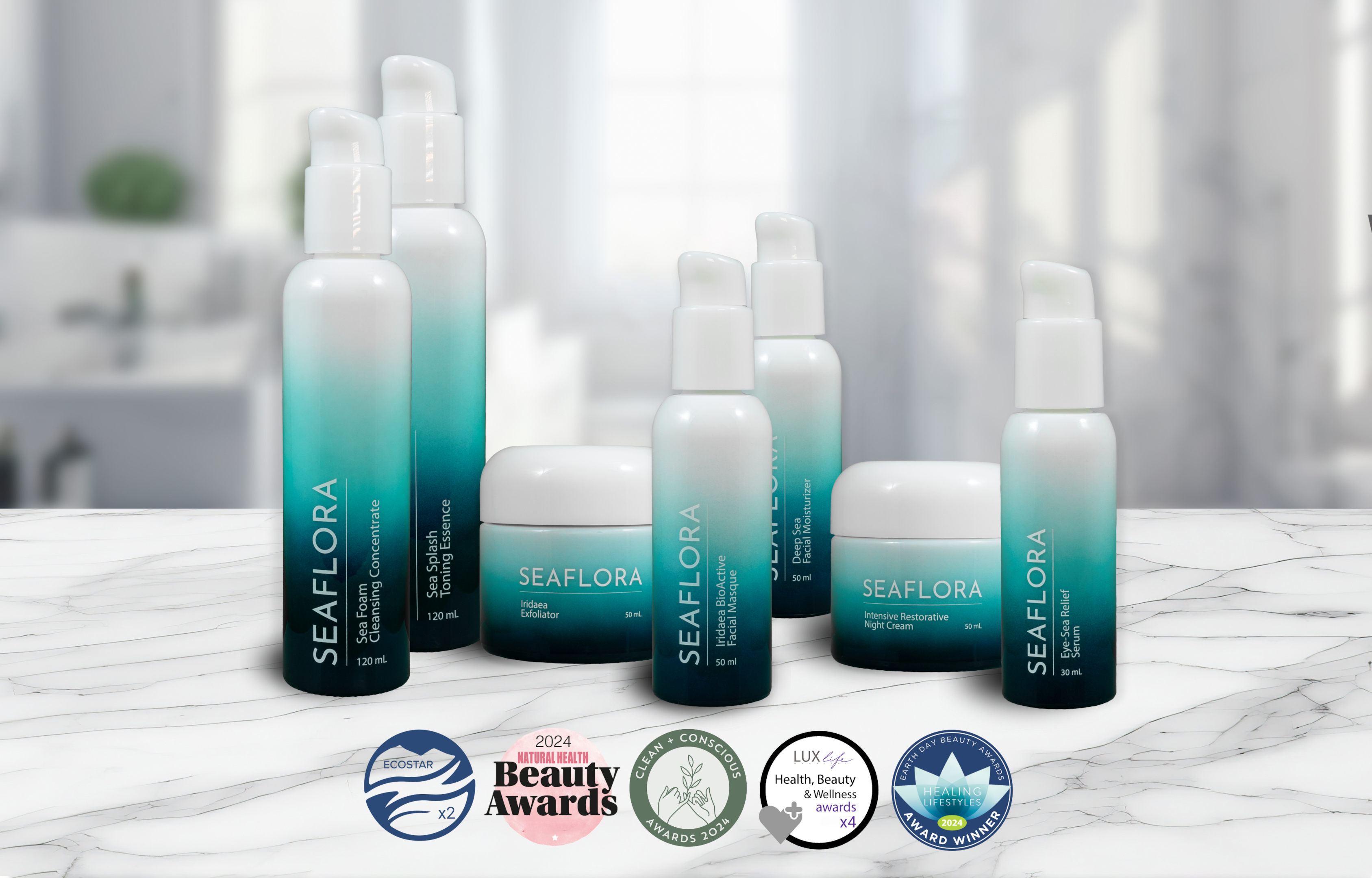Unlock the Outstanding Power of Ocean & Algae Retinol – Natural Retinol A
In the search for youthful skin many turn to retinol, a form of vitamin A known for its anti-aging effects. However, synthetic retinol can often cause dryness, redness, sun sensitivity, and irritation, all leading to an uneven skin tone. This is especially important for those with sensitive skin types. Enter ocean retinol and algae retinol – potent, natural Retinol A alternatives derived from seaweed. Ocean retinol and algae retinol give similar benefits without the negative side-effects of synthetic retinol.
The Limitations of Synthetic Retinol

When it comes to anti-aging skincare, retinol has long been praised as a miracle worker. Taken from vitamin A, this powerhouse ingredient is loved because it can stimulate collagen production, reduce fine lines and wrinkles, and improve skin texture. However, beneath its all of its praise and love, synthetic retinol harbours some important downsides. These are often glossed over or not mentioned. While retinol is loved because it can reduce fine lines and improve skin texture, it’s also very important to know all the risks. Synthetic retinol can lead to many undesirable side effects, such as skin irritation, especially for those with sensitive skin.
Retinol’s Irritation Dilemma for Sensitive Skin
One of the most well-known issues of synthetic retinol is its potential to cause visible signs of irritation. This includes dryness and peeling, especially when first introduced to the skin. For individuals with acne-prone skin, these side effects can be particularly challenging. Existing issues can actually worsen, leading to further breakouts and issues. While this is common, what’s often missed is the severity and period of time that these side effects effect people. Even with constant use, some may never be free of the symptoms of synthetic retinol. These symptoms can lead to constant sensitivity, redness, dryness, and discomfort, ultimately undermining the intended benefits.
It’s also important to keep in mind that when starting starting to use retinol, it’s common to experience a what is known as “purging,” where the skin breaks out or worsens before improving. While this is often said to not last for long, what’s less acknowledged is that purging may persist for an extended period, leading to frustration, a lack of constant use of the product, and even scarring or hyperpigmentation.
Pregnancy Precautions Using Synthetic Retinol
It’s widely known that synthetic retinol should be avoided during pregnancy due to risks that could harm the fetus. What’s less discussed is that it’s recommended to stop using retinol even before becoming pregnant. This is because it can remain in the body for an extended period after discontinuing use. This may not be widely communicated, leaving some women unaware of the risks and the need to plan ahead.
While retinol remains a powerful tool in the fight against ageing, it’s important to be aware of these significant negatives. By understanding the possible challenges, people can make their own decisions and explore other options, such as natural retinol A alternatives. So, if synthetic retinol doesn’t seem like the right option for you, have no fear! There is always true natural retinol A, as well as amazing retinol alternatives
The Promise of Ocean Retinol – A Natural Retinol Alternative
The key to getting healthy, radiant skin lies in finding the right balance. Being mindful of the pros and cons of the products you use is a perfect start. Don’t let synthetic retinol’s promises blind you to its negative side effects. Due to these side effects, ocean retinol, also known as “algae retinol” and “marine retinol”, have been gaining popularity. This is because they are natural retinol A alternatives that also promote collagen and other anti-aging effects.
What’s So Special About Seaweed and Algae?

Seaweed is rich in compounds that mimic the effects of synthetic retinol, earning them the moniker “ocean retinol”, “algae retinol” or “nature’s retinol”. These compounds are not true retinol molecules but rather retinol-like alternatives derived from algae. These alternatives are known for promoting smooth, healthy skin by increasing skin cell turnover and shedding damaged cells. It is important to know that this preformed Vitamin A gets taken into the body and transformed into retinol. In summary, despite these alternative not being true Retinol A, they still give the desired effects of retinol, making them a natural Retinol A alternative.
A published study discussed the potential of seaweed extracts in cosmeceutical applications, including their ability to stimulate collagen production and provide anti-aging benefits, very similar to what most people desire from traditional retinol use.
Algae Retinol: Harnessing the Power of Seaweed for Collagen Production

Some skincare brands, such as Seaflora Skincare, have taken the concept of ocean retinol a step further by making products with “algae retinol.” These products often contain extracts from different seaweed species, like kelp, that are claimed to have retinol-like effects on the skin. Hyaluronic acid is often included in these formulations to enhance hydration and improve skin texture.
A review published study has also discussed the potential of seaweed-derived compounds in skincare, discussing their antioxidant, anti-inflammatory, and antimicrobial properties, which could further add to their anti-aging effects.
The Gentle Nature of Ocean & Algae Retinol – A Natural Retinol A Alternative
One of the key advantages of ocean retinol and algae retinol in skin care is their gentle nature. Unlike synthetic retinol, which can cause dryness, redness, and irritation, these seaweed-based alternatives are suitable for all skin types, including sensitive skin.
Understanding Seaweed’s Vitamin A Content – What’s It Got to Do With Natural Retinol A?

It’s important to note that seaweed does not contain true retinol (preformed vitamin A). However, seaweed is an excellent source of carotenoids like beta-carotene, alpha-carotene, and beta-cryptoxanthin. These are provitamin A compounds that are made into retinol (vitamin A) by the body, which then support the regeneration of skin cells, creating a more youthful and bright appearance.
Key Takeaways for These Natural Retinol A Alternatives
- Seaweed does not contain true retinol (preformed vitamin A) but it’s rich in provitamin A carotenoids, which get made into retinol by your body, leading to the same desired results of synthetic retinol.
- Ocean retinol and algae retinol refer to retinol-like compounds extracted from seaweed species, offering a natural alternative to synthetic retinol that can improve skin tone
- Claimed to have similar skincare benefits to retinol, such as encouraging collagen production and reducing visible signs like wrinkles, but with a gentler approach.
Let’s Sum It Up – Natural Retinol A & Synthetic Retinol
As the demand for effective yet gentle anti-aging solutions continues to rise, ocean retinol and algae retinol offer exciting possibilities for those seeking the benefits of retinol, without the potential irritation associated with synthetic forms. And while retinol remains a powerful tool in the fight against ageing, it’s essential to be aware of these significant negatives.
Understanding potential effects are vital when making an informed decision on whether or not to explore natural retinol A options, such as gentler retinol alternatives, if synthetic retinol causes problems for your skin. Integrating these alternatives into your skincare routine can provide effective results without irritation.




